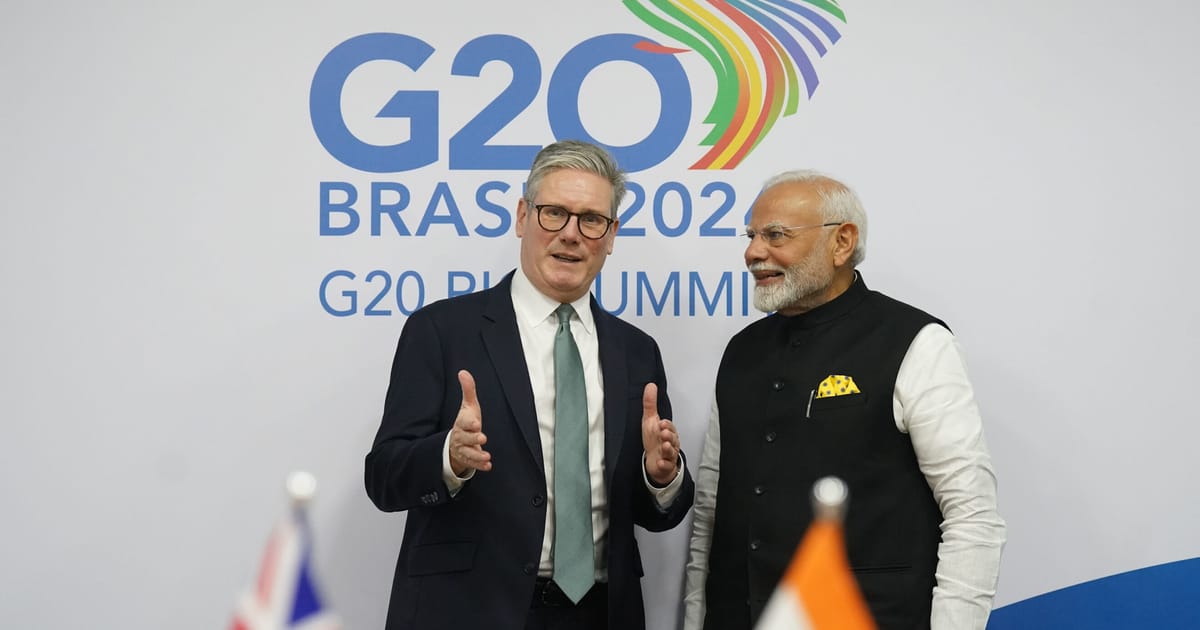

In recent days, dynamic trade negotiations and economic policy decisions have been shaping global interactions as countries strive to strengthen economic ties and manage internal political landscapes. A positive outlook in global economic cooperation is conveyed through a series of key developments around the world.
The keenly anticipated UK-India trade deal continues to spark discussions, with leaders from both nations expressing optimism about the agreement’s potential. UK Prime Minister Rishi Sunak and Indian Prime Minister Narendra Modi have emphasized the prospective benefits of the deal for both countries. However, as the agreement edges closer to finalization, questions remain, particularly regarding a contentious clause on national insurance taxes for foreign workers. As diplomatic efforts progress, this agreement exemplifies the complex tapestry of modern trade negotiations.
Attention also turns to South America, where political events take a more charged tone. In Brazil, a Supreme Court order to freeze the assets of Eduardo Bolsonaro, the son of former President Jair Bolsonaro, has highlighted the current political tension. The order arises amid allegations that Eduardo was involved in lobbying efforts in the United States to assist his father, who is under scrutiny for a purported coup attempt post-election. This situation accentuates the intricate balance between legal proceedings and political maneuvering in Brazil.
On the other side of the globe, the United States and Japan have successfully negotiated a trade deal after weeks of earnest discussions, marking a significant step forward in Japanese-American economic relations. The $550 billion agreement aims to infuse substantial investment into the United States, offering a potential boost to both economies. This development comes as a relief to Japan, where economic uncertainties had been mounting, alongside public speculation concerning the future of Prime Minister Shigeru Ishiba.
In Australia, financial deliberations take a different form with the Reserve Bank of Australia’s (RBA) considered approach to interest rates. Governor Michele Bullock has articulated a cautious stance, emphasizing the importance of stable inflation before contemplating rate cuts. Bullock underscored the central bank’s commitment to maintaining price stability without triggering widespread unemployment, demonstrating a careful consideration of economic policies amid evolving global financial landscapes.
Meanwhile, the European Union and the United States are nearing an agreement potentially implementing a 15% tariff on imports, promising a substantial impact on trade. This agreement draws parallels to the recent US-Japan deal, highlighting a critical component of modern trade dynamics. Nevertheless, diplomatic preparations continue to ensure mutual cooperation, with certain exceptions, such as aircraft and medical devices, possibly exempt from the new tariffs.
In a bid to enhance consumer banking convenience, the financial technology company Revolut has announced the introduction of a Portuguese International Bank Account Number (IBAN), set to simplify direct debits and payments within the country. Following extensive negotiations with the SIBS, the integration with Multibanco bolsters Revolut’s position in the Portuguese banking landscape, eliminating previous barriers and streamlining its services for users.
These pivotal developments underscore a transformative phase in global economic and political arenas, where collaboration and negotiation are key to fostering stability and progress. As nations navigate these terrains, the underlying commitment to mindful economic practices provides a hopeful outlook for the future, subtly resonating throughout these diverse yet interconnected stories.
Source: {link}
